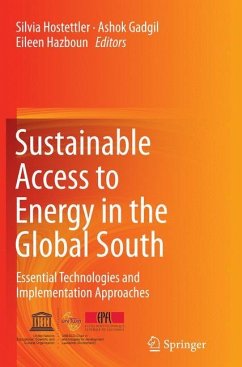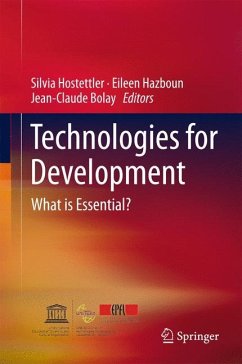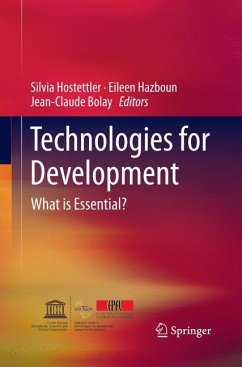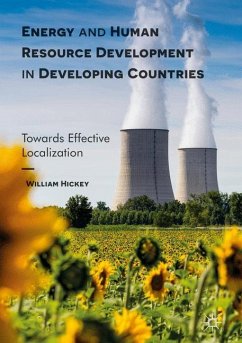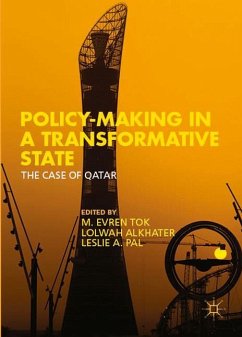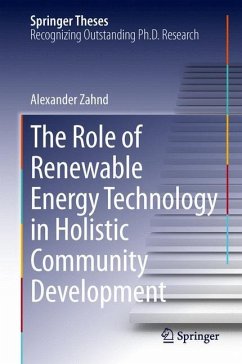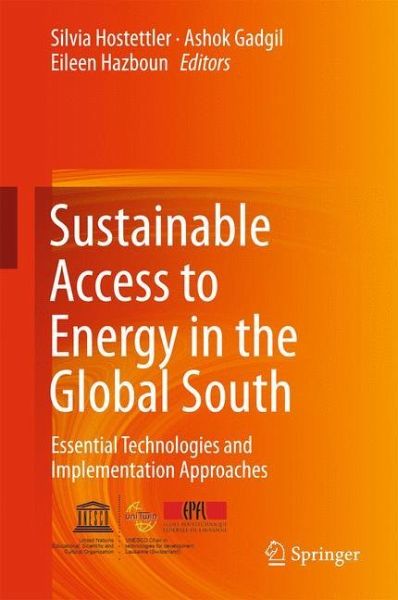
Sustainable Access to Energy in the Global South
Essential Technologies and Implementation Approaches
Herausgegeben: Hostettler, Silvia; Gadgil, Ashok; Hazboun, Eileen

PAYBACK Punkte
57 °P sammeln!
Presenting the best papers of the 3 rd EPFL-UNESCO Chair Conference on Technologies for Development, this publication offers a valuable collection of innovative case studies exploring access to energy and renewable energy technologies in the Global South. It investigates the key determinants for successfully providing energy to resource-poor communities and examines a wide range of technologies for energy production, distribution, storage and efficient use. Taken together, these case studies deal with the entire life cycle of products and solutions, as well as the complete value chain includin...
Presenting the best papers of the 3 rd EPFL-UNESCO Chair Conference on Technologies for Development, this publication offers a valuable collection of innovative case studies exploring access to energy and renewable energy technologies in the Global South. It investigates the key determinants for successfully providing energy to resource-poor communities and examines a wide range of technologies for energy production, distribution, storage and efficient use. Taken together, these case studies deal with the entire life cycle of products and solutions, as well as the complete value chain including all relevant stake holders. The collection also draws upon empirical research conducted in Africa and South America to present critical perspectives on women's access to technologies in the renewable sector. This publication serves as a bridge between engineers, economists and other scientists involved in research on the interface between technology and human, social and economic development. It also provides a valuable resource to academics and researchers of the natural sciences, computer science, information management, quantitative social sciences and business studies.





